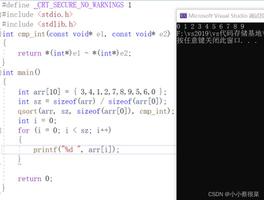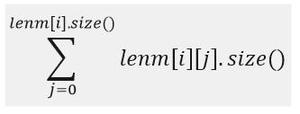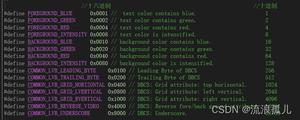详解Vue源码中一些util函数
JS中很多开源库都有一个util文件夹,来存放一些常用的函数。这些套路属于那种常用但是不在ES规范中,同时又不足以单独为它发布一个npm模块。所以很多库都会单独写一个工具函数模块。
最进尝试阅读vue源码,看到很多有意思的函数,在这里分享一下。
Object.prototype.toString.call(arg) 和 String(arg) 的区别?
上述两个表达式都是尝试将一个参数转化为字符串,但是还是有区别的。
String(arg) 会尝试调用 arg.toString() 或者 arg.valueOf(), 所以如果arg或者arg的原型重写了这两个方法,Object.prototype.toString.call(arg) 和 String(arg) 的结果就不同
const _toString = Object.prototype.toString
var obj = {}
obj.toString() // [object Object]
_toString.call(obj) // [object Object]
obj.toString = () => '111'
obj.toString() // 111
_toString.call(obj) // [object Object]
/hello/.toString() // /hello/
_toString.call(/hello/) // [object RegExp]
上图是ES2018的截图,我们可以知道Object.prototype.toString的规则,而且有一个规律,Object.prototype.toString的返回值总是 [object + tag + ],如果我们只想要中间的tag,不要两边烦人的补充字符,我们可以
function toRawType (value) {
return _toString.call(value).slice(8, -1)
}
toRawType(null) // "Null"
toRawType(/sdfsd/) //"RegExp"
虽然看起来挺简单的,但是很难自发的领悟到这种写法,有木有。。
缓存函数计算结果
假如有这样的一个函数
function computed(str) {
// 假设中间的计算非常耗时
console.log('2000s have passed')
return 'a result'
}
我们希望将一些运算结果缓存起来,第二次调用的时候直接读取缓存中的内容,我们可以怎么做呢?
function cached(fn){
const cache = Object.create(null)
return function cachedFn (str) {
if ( !cache[str] ) {
cache[str] = fn(str)
}
return cache[str]
}
}
var cachedComputed = cached(computed)
cachedComputed('ss')
// 打印2000s have passed
cachedComputed('ss')
// 不再打印
将hello-world风格的转化为helloWorld风格
const camelizeRE = /-(\w)/g
const camelize = cached((str) => {
return str.replace(camelizeRE, (_, c) => c ? c.toUpperCase() : '')
})
camelize('hello-world')
// "helloWorld"
判断JS运行环境
const inBrowser = typeof window !== 'undefined'
const inWeex = typeof WXEnvironment !== 'undefined' && !!WXEnvironment.platform
const weexPlatform = inWeex && WXEnvironment.platform.toLowerCase()
const UA = inBrowser && window.navigator.userAgent.toLowerCase()
const isIE = UA && /msie|trident/.test(UA)
const isIE9 = UA && UA.indexOf('msie 9.0') > 0
const isEdge = UA && UA.indexOf('edge/') > 0
const isAndroid = (UA && UA.indexOf('android') > 0) || (weexPlatform === 'android')
const isIOS = (UA && /iphone|ipad|ipod|ios/.test(UA)) || (weexPlatform === 'ios')
const isChrome = UA && /chrome\/\d+/.test(UA) && !isEdge
const isPhantomJS = UA && /phantomjs/.test(UA)
const isFF = UA && UA.match(/firefox\/(\d+)/)
判断一个函数是宿主环境提供的还是用户自定义的
console.log.toString()
// "function log() { [native code] }"
function fn(){}
fn.toString()
// "function fn(){}"
// 所以
function isNative (Ctor){
return typeof Ctor === 'function' && /native code/.test(Ctor.toString())
}
以上所述是小编给大家介绍的Vue源码中一些util函数详解整合,希望对大家有所帮助,如果大家有任何疑问请给我留言,小编会及时回复大家的。在此也非常感谢大家对网站的支持!
以上是 详解Vue源码中一些util函数 的全部内容, 来源链接: utcz.com/z/318636.html








